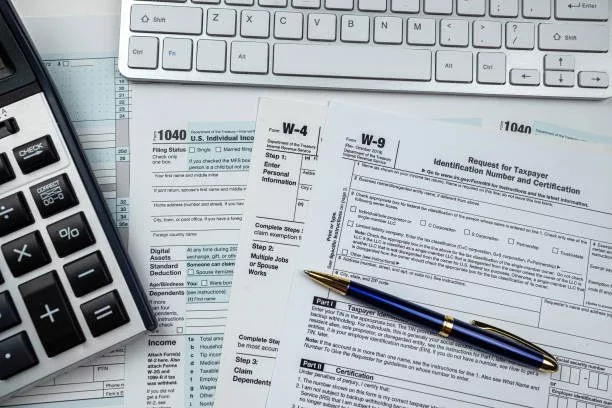A bill with new safety regulations for the freight rail industry passed the U.S. Senate’s Commerce, Science and Transportation Committee, led by Senator Maria Cantwell (D-WA), on a 16-11 vote. The ‘yes’ column included some of the bill’s Republican co-sponsors, while other Republicans called the proposed rules “overly burdensome”. You can read more about the bill in the release from Cantwell’s office below.
A local railroad attorney says freight rail companies would have virtually no choice but to accept most of the regulations proposed in the bill.
Freight rail deregulation has led to a lax approach to safety, says attorney Jim Vucinovich, who tells me rail operators, like Norfolk Southern, would have to comply with changes, like more heat sensors, along the tracks that could have prevented the Ohio derailment. Those sensors are known as “hotbox detectors”, which use infrared to measure the heat in the journal boxes on the wheels in the cars. The Ohio derailment happened after those sensors detected rising temperatures but didn’t indicate they were too hot until it was too late.
In addition, Vucinovich says the number of Federal Railroad Administration inspectors is so small for the vast rail system in the U.S. that it’s like a gnat on an elephant. “Regulations of this type are needed. Regulations of this type, more of this type should be brought to the forward,” Vucinovich says, “and there’s no doubt the railroads will resist when they have an incredibly powerful lobby.”
Vucinovich also says the plan to forbid 30 second limits on rail car inspections before they head out, which is part of rail’s push for speed, is common sense considering they’re often done from vehicles or at night, when it’s harder to see. Vucinovich says, “Let’s take the time and adequately and thoroughly inspect the equipment before it leaves, before it has the potential to break down, be defective, and cause a disaster, you know, without pressure, without fear of being disciplined because of a lack of productivity.” It’s something he calls an “essential piece” of the legislation.
Other cost-cutting measures include the attempt to move from two-person to one-person crews on these trains. Vucinovich says if freight railroads had their way, they’d operate them autonomously with no crews. Still, he compares the crew reductions to flying a plane with one pilot instead of two, only while carrying hazardous cargo rather than passengers.
Another key piece of the bill, he says, is proposed increases in fines for violations, which Vucinovich says would actually motivate changes in behavior that could improve rail safety because heavy fines would cut into their profits. Right now, Vucinovich says railroads are issued small fines, which he says they group together and negotiate down, often to less than 5% of the original fine. He says that’s considered a cost of doing business, so the companies aren’t motivated to make safety changes like they would be if the fines were much higher, like the ones in the bill.
The following is the release from Senator Cantwell’s office:
WASHINGTON, D.C. – Today, during an executive session of the Senate Committee on Commerce, Science, and Transportation, bipartisan railway safety legislation supported by Committee Chair Senator Maria Cantwell (D-WA) passed in a 16-11 vote. The Railway Safety Act of 2023 now moves on to the full Senate for consideration.
During the executive session, Sen. Cantwell argued that train derailments like the February accident in East Palestine, OH, are preventable.
“We learned from [the] East Palestine derailment the improvement of detectors could help prevent these future derailments. This legislation requires, for the first time, railroads to use these defect detectors with more frequency, and makes it not just voluntary, but a requirement,” Sen. Cantwell said.
“We learned that not enough trains carrying hazardous material are treated with the care that they deserve. Under this legislation, more trains will be subject to the stringent safety requirements, including trains carrying vinyl chloride gas,” she continued. “That was one of the elements in the East Palestine derailment. In my home state, our communities are all too familiar with this issue. Derailments of trains operated by Class I railroads have doubled in the past 10 years. And this year alone, we’ve already seen one that leaked diesel into a sensitive ecosystem in Padilla Bay along the Swinomish tribal reservation. People should not have to worry about what’s being transported through their communities.”
The Railway Safety Act of 2023 builds upon legislation introduced by Ohio and Pennsylvania Sens. Sherrod Brown (D-OH), J.D. Vance (R-OH), Bob Casey (D-PA), and John Fetterman (D-PA), along with Sens. Marco Rubio (R-FL) and Josh Hawley (R-MO) following the devastating train derailment in East Palestine, OH.
A list of eight key provisions included in the bill to enhance railway safety can be viewed HERE.
The legislation includes key provisions championed by Sen. Cantwell to support firefighters who bravely respond to disasters like the East Palestine derailment. It also reforms the Department of Transportation’s (DOT) Hazardous Materials Emergency Preparedness (HMEP) programs to ensure fire departments can purchase personal protective gear and creates a new program to make fire departments whole after responding to a derailment.
In the State of Washington, 44 million tons of hazardous materials move to destinations in the state each year by rail. This includes four million gallons of crude oil, which are transported by train through the state each day. Many oil trains travel through cities, including Seattle, Pasco, and Bellingham. Over 75% of fire departments in the State of Washington are volunteer or mostly volunteer-run. Only 14% of fire departments in the state have a specialized hazardous materials team that could best respond to hazmat spills.
Sen. Cantwell has a history of past work to enhance safety regulations for railways. On February 17, Sen. Cantwell announced an investigation into railroads’ handling of hazardous materials, sending letters to seven top railroad CEOs seeking information about their safety practices. On March 22, Sen. Cantwell grilled Norfolk Southern CEO Alan Shaw about the rail industry’s commitment to safety during a hearing of the Senate Committee on Commerce, Science, and Transportation.





